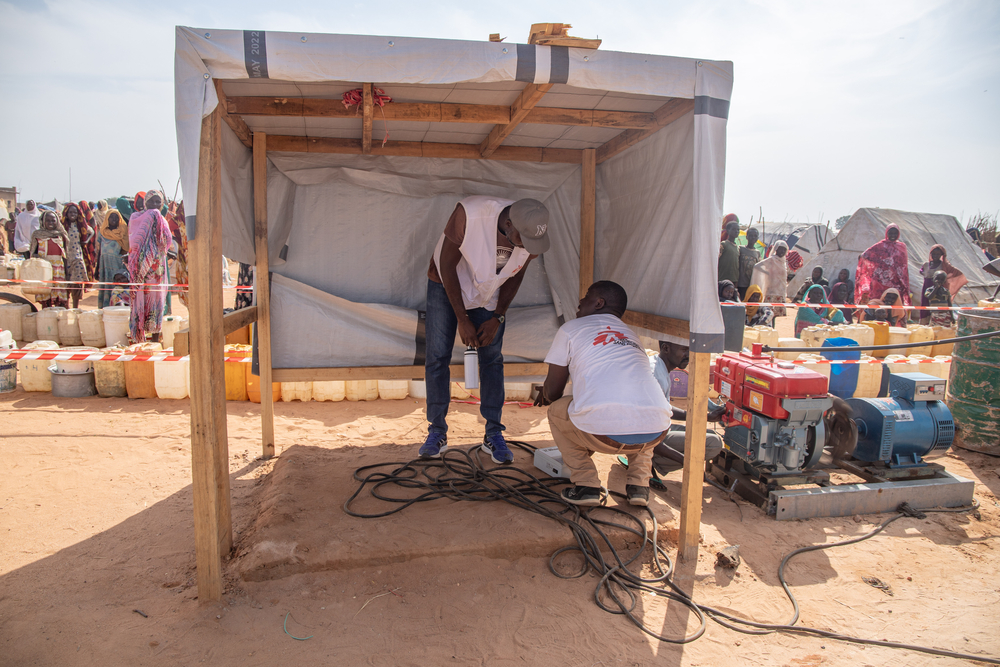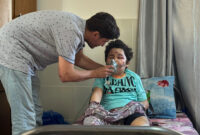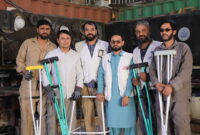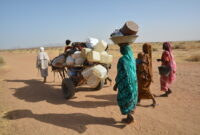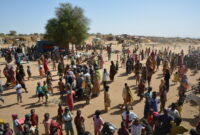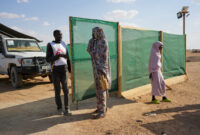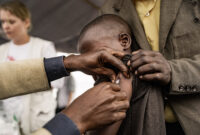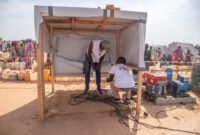Chad: Alarming water crisis in Adré puts refugees’ lives at risk
Access to safe drinking water in the camps at Adré, a border town in eastern Chad, remains far below acceptable standards, posing a grave threat to the health and wellbeing of around 200,000 Sudanese refugees. According to UNHCR estimates, average water availability across all camps in eastern Chad is less than six litres per person per day, well below the recommended emergency standard of 20 litres per person per day. MSF has set up 15 water collection points and dug five boreholes around the refugee camps, but these provide much less water than is needed.
The health situation among refugees in Adré is precarious, with elevated rates of malaria and acute watery diarrhoea. Large-scale disease outbreaks in such a densely populated and under-supported refugee setting would have catastrophic consequences. Medical facilities run by MSF and other organisations are already operating at maximum capacity and hospital referral options are very limited.
The water shortage in the Adré camps is likely to be exacerbated by an influx of new arrivals as the rainy season draws to a close. By the end of this year, an additional 600,000 refugees are expected to arrive from Sudan, placing even greater pressure on existing water resources in the camps.
“In the refugee camps at Adré, in eastern Chad, some 200,000 people are receiving just five to six litres of water daily, well below the recommended emergency standard of 20 litres per day. Doctors Without Borders/Médecins Sans Frontières (MSF) serves as the primary water provider in the camps, distributing around 600,000 litres daily and covering more than 80 per cent of the available water supply for refugees. Despite these efforts, this amount is insufficient, especially in scorching weather. An insufficient water supply hinders basic needs such as washing and cooking, forcing people to turn to unsafe sources and increasing the risk of waterborne diseases such as diarrhoea and cholera. International non-governmental organizations and donors must act promptly to address this pressing humanitarian crisis by ensuring that people in the camps gain sustainable access to safe drinking water.”
Christophe Chauliac, MSF project coordinator, Adré
